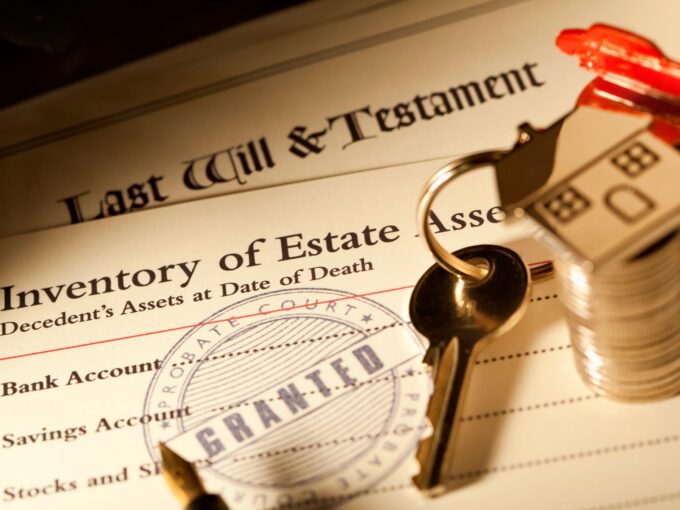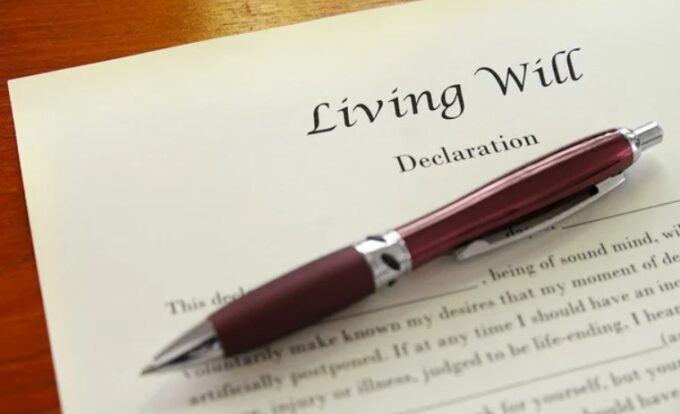No one knows what the future holds. What you do for your estate plan now can either set your family up for success or be a disaster that costs your family money and heartache. A bulletproof estate plan is a vital component of any futureproofing. You’ll want to build an estate plan that reflects your wishes, won’t be contestable in court, won’t leave hurt feelings, and won’t end up costing your family an arm and a leg in taxes.
This laundry list of ambitions is realizable with the right approach. Planning for the unknown can be intimidating. Follow these eight steps to lock in your golden years and protect your family’s future.
What is an estate?

The word estate might make you think of a mansion and grounds, but in the legal world, an estate is a person’s net worth at any point in their lives or after death. Said differently, an estate is the sum of a person’s assets with liabilities such as debts subtracted.
When planning your estate, you’re most likely considering what you will leave to your partner, children, and grandchildren or how you can benefit charitable causes that are important to you. Your wishes are important, so you should invest time into making sure they’ll be followed. A respected law firm such as this can help ensure your assets are protected after you pass.
1. Think about your legacy
First, you should begin with the end in mind. What do you want your legacy to be? How would you like your family to benefit from your estate? How can your assets make a difference in the world? The answers to those questions will help you determine your goals in building a bulletproof estate.
2. Name beneficiaries

Next, you will want to designate your beneficiaries. Beneficiaries are those who will inherit some or all of your estate. Beneficiaries are often spouses, children, or grandchildren, but churches, non-profit organizations, universities, and charitable trusts can also be beneficiaries.
3. Sign a will
According to the Gallup organization, less than half of Americans have a will, a legal document that designates how to divide an estate among beneficiaries. A will also determines custody of children after the death of one or both parents. Your wishes can’t be carried out if no one knows what they are, so drafting and certifying a will is necessary.
Life insurance benefits can be included in a will, but any life insurance policy beneficiaries will be designated on the policy itself. Your will should appoint an executor to pay any debts owed by the estate and divide an estate among beneficiaries according to the deceased’s wishes.
The estates of those without a will settle in court, and the outcome may not be what the estate holder intended. Court costs can also eat away at an estate’s value. Work with an attorney to draft a will and protect your legacy.
4. Avoid estate taxes

Generally, estates pass to spouses or charities tax-free, but children or beneficiaries may face steep estate taxes. These taxes are calculated by determining the gross estate value and deducting assets that pass to a surviving spouse or charity, mortgages, loans, debts, and estate administration costs. The resulting figure is the net value of the estate, which is tax liable.
Life insurance benefits are not taxed in this way, which is an important consideration when assigning beneficiaries. For example, if you’re leaving your estate to your spouse, you might leave your life insurance payout to your children to avoid Uncle Sam’s cut. You may also want to talk with a certified financial planner or a lawyer specializing in estates to minimize the impact of taxes on your estate’s worth.
5. Draw up a power of attorney
Establishing a durable power of attorney is an estate planning step that many people overlook. Power of attorney will enable a spouse, child, or anyone you designate to act in your legal or medical interest. Should you be unable to act in your own capacity, your power of attorney can make financial and legal decisions.
6. Create a living will

A health care power of attorney, also called a living will, makes your wishes known in an end-of-life situation. A living will takes the weight off your family members, who will not have to decide whether to sign a do-not-resuscitate order. You can rest knowing that your wishes will be honored if this document is filed with your health care provider with close family members.
7. Organize your documents
Having all of your estate planning ducks in a row is great, but it won’t be effective if no one knows about your documents or can find them. Keep your wills, life insurance policy, and signed power of attorney in a secure place such as a safe or banker’s vault, and let your beneficiaries know where these documents are stored. That way, you can rest assured that your final wishes will be known.
8. Leave letters behind

Passing along your blessings to loved ones is an integral part of your legacy. A written letter to a beneficiary may not have legal standing, but the recipient is sure to treasure it. You can also use these letters to assign belongings too small to mention in your will.
You might donate china and crystal, jewelry, or sentimental objects to your beneficiaries, your relatives such as siblings or nieces and nephews, and your close friends. This process imparts special significance upon your belongings and prevents arguments amongst your loved ones.
The bottom line
Building a bulletproof estate means that your plans will be executed according to your wishes and that the hard work you did in life will benefit your family in death. Bulletproof estates aren’t taken apart by estate taxes, lawyer’s fees, or fighting over an inheritance.
Health care directives protect your wishes when ill, and a power of attorney can represent your interests when you are unable. By following these eight steps, you can rest knowing that the legacy you leave behind will be as strong as the one you built during your life.









